G2C Online

SNP Snoop: BDNF and driving ability; failed road test?
Nov 2nd
Could an alternative version of your brain-derived neurotropic factor be an excuse for your failed road test?
According to research published in the Journal, Cerebral Cortex, by Stephanie McHughen et.al., a key SNP in BDNF (valine 66 mutated to methionine) impacts learning and memory functions, cognitive tools which happen to be crucial for operating an automobile.
During one of the described experiments, subjects were seated at a computer, with attached steering wheel as they had to keep the virtual car on a black line in the center of the screen. Subjects got to learn the driving circuit by following the car on 15, More >
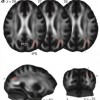
White Matter Matters!
Oct 19th
Can you change the structure of your brain with practice? A slew of papers in the last decade affirm that yes, you very much can. Probably the best known is a study by Maguire and colleagues, who found structural differences in the hippocampi of London taxi drivers — presumably the result of having to learn London’s 25,000 streets. [We turned the Maguire et al. study into an online experiment, which you can play here].
To date, every study that identified practice-related changes in brain structure located these changes in grey matter. Now, for the first time, a paper by Scholz and colleagues More >

Defining the Enemy, Advances in Autsim Research
Oct 5th
For most people the ideas of genes and traits recall a few scattered facts from their primary schooling on Mendel and his pea plants; short ones, tall ones, Punnett squares and the like. When it comes it comes to simple traits, like eye color, people may think that it is only a matter of some combination of dominant or recessive genes, i.e. BB, Bb, or bb. As it turns out, eye color is more genetically complex than this. So one could imagine that solving the genetic mysteries behind autism are even more complex.
In a recent review of autism research, Brent More >
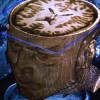
Smart Drugs and Should We Take Them
Sep 21st
I was looking back through the ADHD section of G2C Online this week, namely the interview with Philip Shaw on ADHD and medication. According to Dr. Shaw, up to 90% of children with ADHD who take Ritalin, Adderall or Strattera show improvements on cognitive tasks . This is quite an impressive statistic and got me wondering whether these drugs enhance normal cognitive functions and, if so, are people taking them? The answer to both these questions seems to be a firm “yes”.
In April 2008, Nature published results of an informal online survey of readers’ use of cognition-enhancing drugs, namely Ritalin, Provigil, and More >
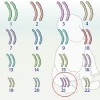
Copy number variation in Schizophrenia
Sep 1st
Ever had the feeling you have lost your marbles? According to the Phrase Finder that expression has conveyed a sense of loss, anger, and more recently a lack of common sense or sanity. As it turns out it may be the loss of certain segments of DNA (rather than simple mutations like SNPs) that may have a lot to do with the origins of mental illnesses like schizophrenia.
Now before you start thinking that schizophrenics are the only ones to lose their marbles (or large sections of their genomes), It has been previously shown by work like that of Jonathan Sebat of More >

Heath Ledger’s Joker and the Hollywood Stereotype of Mental Illness
Aug 19th
A report released this week by Dr. Peter Byrne of Newham University Hospital in London takes issue with the portrayal of mental health in Hollywood. Dr. Byrne highlights a number of characters, including Heath Ledger’s Joker from the Batman series and Jim Carrey’s character(s) in Me, Myself and Irene, which “represented a new low [for] laughing at people with severe mental illness.”
Titled ‘Screening Madness’, the report highlights lazy and derivational stereotypes that perpetuate the myth that people with mental health problems are either stupid or dangerous.
According to Dr Byrne, “Mental health stereotypes have not changed over a century of cinema. More >

Depression Genetics Suffer Major Setback
Jul 6th
A 2003, a paper by Caspi and colleagues offered tantalizing clues about the genetics of depression, in what was widely-acclaimed as a breakthrough paper for psychiatric genetics as a whole. Now, new research by Katleeen Merikangas at the National Institute of Mental Health queries the results taking us, according to Science magazine, back to the drawing board.
What was so important about Caspi et al.? The original Caspi paper of 2003 looked at a sample of 847 New Zealanders, and examined whether gene-environment interactions might lead to depression. The research team were particularly interested in genes involved in serotonin transportation and reception - serotonin has More >

Ida – Overwhelming or Over-Hyped?
May 26th
Last week, the fossil skeleton known as “Ida” was introduced to the world with a fanfare rarely seen in the scientific community. Touted by publicists as the find “that will change everything”, Ida’s arrival on the world scene has provoked a mixed reaction from researchers and commentators.
Ida was a lemur-like mammal that roamed central Europe about 47 million years ago. She died at a relatively young age of 9 months, on the banks of the volcanic Lake Messel in modern-day Germany. The circumstances of her death play a large part in her current fame – researchers involved in the find More >
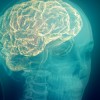
Psychosis – New Study Links Gene Variant to Brain Structures
May 12th
A study published in last week’s Science magazine shows how genomic science and neuroimaging can be combined to deliver insights into cognitive disorders. As well as providing an intriguing look into the neurobiology of psychosis, the study reflects a growing trend toward inter-disciplinary research in the neurosciences,
What did the study show?
Psychosis is a disordered cognitive state that can include disorganized thoughts, delusions, or hallucinations. It is a common symptom of schizophrenia and has been linked to a number of brain areas, including the the dorsolateral prefrontal cortex (DLPFC) and the hippocampus. Schizophrenia is also strongly associated with a number of genes, and More >
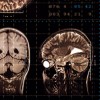
Can We Diagnose PTSD with Brain Scans?
Apr 18th
Duke University’s Rajendra Morey was in the news this week following a presentation at the World Psychiatric Association Congress in Italy. Dr Morey’s group recently published a paper equating symptoms of post posttraumatic stress disorder (PTSD) with “markedly different neural activity”. Dr. Morey raised the possibility of using brain scans to diagnose PTSD, thereby catapulting herself into the science pages of Forbes, Reuters et al. She joins a lengthy list of researchers that have whetted our appetite with tantalizing suggestions about the predictive power of neuroimaging. Sadly, the list of those who have followed through on this promise is not quite so More >
